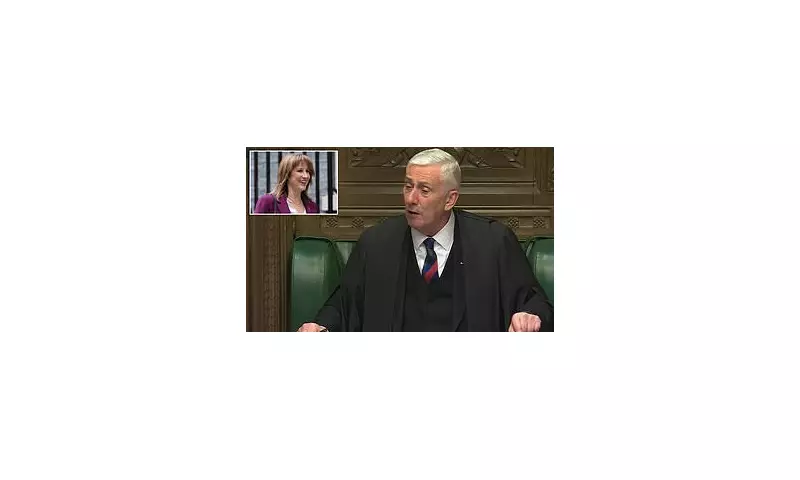
Sir Lindsay Hoyle, the Speaker of the House of Commons, has publicly ridiculed Chancellor Rachel Reeves over what he termed a 'hokey-cokey' Budget, joining growing criticism of chaotic government leaks and policy reversals just days before the crucial fiscal statement.
Budget Process Descends Into Chaos
The parliamentary session turned dramatic as Sir Lindsay Hoyle delivered an extraordinary reprimand to Treasury ministers over systematic media leaks surrounding the upcoming Budget, scheduled for delivery on 26 November. The Speaker's intervention came during an urgent question session forced by Conservative MPs seeking to highlight the government's disarray.
Addressing Labour's James Murray, the Chief Secretary to the Treasury, Sir Lindsay declared: 'Can I just say, it isn't normal for a Budget to be put in the press. It's the hokey-cokey Budget. One minute it's in, next minute it's out.' His remarks drew both laughter and concern across the chamber, reflecting the deepening embarrassment for the government.
Income Tax U-Turn Sparks Rebellion
The controversy follows Rachel Reeves' spectacular reversal on income tax policy that has triggered a Labour rebellion and market uncertainty. At the beginning of this month, the Chancellor had paved the way for a manifesto-busting 2p income tax increase, warning that 'each of us must do our bit' to address economic challenges.
However, last week saw these plans abruptly scrapped, with proposals instead emerging to cut National Insurance by 2p while abandoning the income tax hike. The Treasury has insisted that better-than-expected economic forecasts enabled Ms Reeves to avoid proceeding with the original plans, though the timing and communication have drawn widespread criticism.
The policy reversal comes amid mounting discontent within Labour ranks over the abandonment of a key election promise from last year's general election campaign.
Economic Experts Voice Concerns
The Budget process has attracted criticism from senior economic figures, with Andy Haldane, former top economist at the Bank of England, describing the pre-Budget period as a 'circus'. Mr Haldane told Sky News that speculation about the Budget was partly responsible for weaker-than-expected economic growth.
'If you speak to businesses, speak to consumers, their fearfulness about where the axe will fall is causing them, not unreasonably, to save rather than spend, to not put their balance sheet to work,' he explained. 'And that has taken the legs from beneath growth in the economy.'
In a particularly damning assessment, Mr Haldane suggested the Chancellor had been dealt a 'bad hand, played, in truth, pretty poorly', indicating serious concerns about the government's economic management.
Parliamentary Protocol Under Threat
Sir Lindsay Hoyle expressed deep concern about the erosion of parliamentary traditions, noting that ministers would historically resign for leaking Budget information. 'At one time, a minister would be resigning for anything that was released. This House should be sacrosanct in all decisions and [they] should be heard here first,' he emphasised.
The Speaker drew parallels with previous governments that had also been reprimanded for similar leaks, stating firmly: 'I am very worried - like the previous government, which also had to be reprimanded for putting leaks out - it is not good policy.'
Conservative MPs seized on the government's discomfort, with laughter erupting when Mr Murray claimed that 'stability remains at the heart of our approach' during his response to the urgent question.
Tory shadow chancellor Sir Mel Stride accused the government of showing 'utter contempt for this House', noting that while Treasury ministers routinely refuse to answer Budget questions in Parliament by stating that 'decisions on tax will be announced at the Budget', the same matters were being 'openly reported in the national media on a daily basis'.
As the government prepares for its crucial fiscal statement next week, the combination of internal rebellion, expert criticism and parliamentary condemnation has created a deeply challenging environment for Rachel Reeves' first major Budget announcement.






